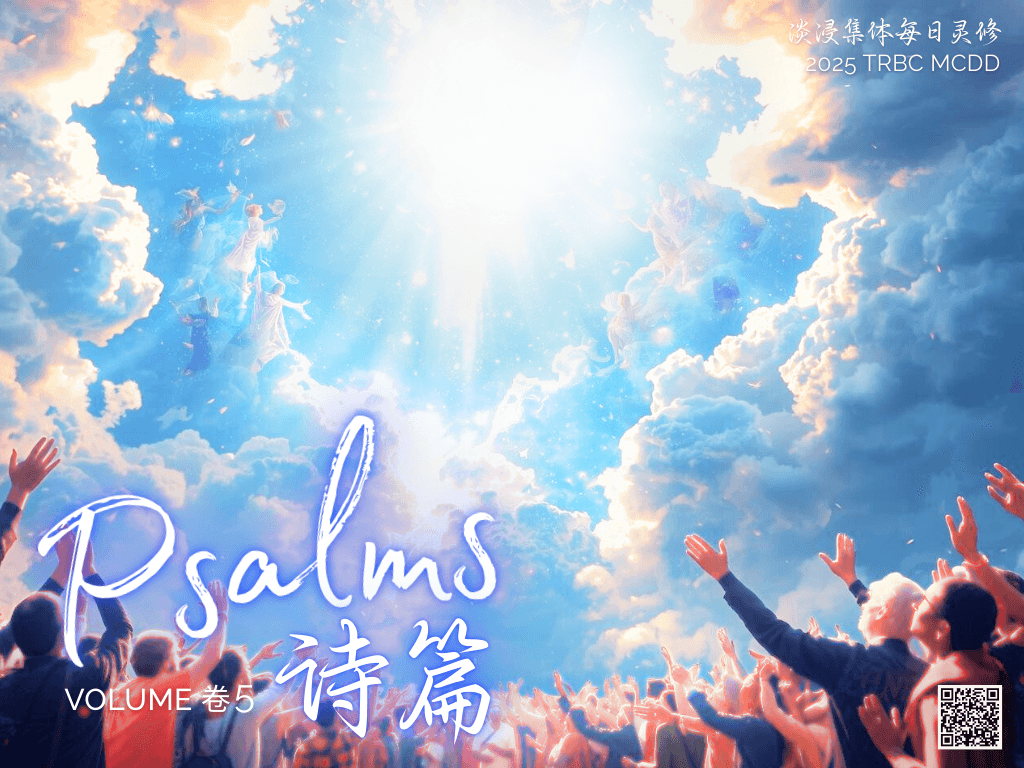

Click here to read Ch 113
Psalm 113 is a psalm of praise. The first part from verses 1 to 4 is connected to the second part from verses 7 to 9 by the middle verses 5 and 6 which poses a rhetorical question to the readers.
The exclamation mark at the end of verses 1, 2 and 3 denotes a joyous tone and it also urges the readers about praising the name of the Lord. The word “praise” occurs four times and the phrase “the name of the Lord,” thrice in this section. As servants of the Lord, all of us are to bless the name of the Lord at all times (verse 2) and praise His holy name from the rising and setting down of the sun (verse 3).
While verse 5 describes rhetorically that though God sits high above all the nations and His glory is above the heavens, the Psalmist reminds the readers in verse 6 that He looks down on the heavens and the earth as well. This reminder about God also pays attention to what is happening on the earth is a transition to verses 7-9 when the Psalmist highlights specific marginalized people or troubled individuals in the society.
When the Psalmist uses the expressions “the dust” and “the ash heap,” it shows the lowly and miserable situations of the poor and needy. There are many accounts in the Old Testament that God calls out to His people to take care of the widows, orphans and poor. One classic example is how Boaz followed the injunction in Lev 23:22, “And when you reap the harvest of your land, you shall not reap your field right up to its edge, nor shall you gather the gleanings after your harvest. You shall leave them for the poor and for the sojourner: I am the Lord your God.” Boaz’s workers did not collect the harvest from the perimeters of his fields but to leave them to the poor like Ruth (Ruth 2:2-3).
In verse 9, the Psalmist also includes the woman who is barren. Deut 28:18 explicitly lists barrenness as one of the curses for disobedience in the Old Covenant. In Hos 9:11-14, barrenness is presented as a part of a curse called upon enemies, highlighting the severity of God's judgment. Thus, it is miserable for a woman who does no wrong yet who is barren, to being perceived as having committed some sin against God. The writer concludes this Psalm by using this example to illustrate that there is no one like Him who is our eternal God and who shows concern for people with their individual needs.
Brothers and sisters, let us be encouraged that if God takes care of the poor, needy and the barren woman, He will also take care of all His people who call upon His holy name.
Prayer
Our great and mighty God, thank you for reminding me through this Psalm that you also know this concern or need of mine – (pray and tell God specifically what is in your heart). I love you and fear you as the God of my life. Please intervene and address this concern that I have committed to you. I pray this in Jesus’ name. Amen.